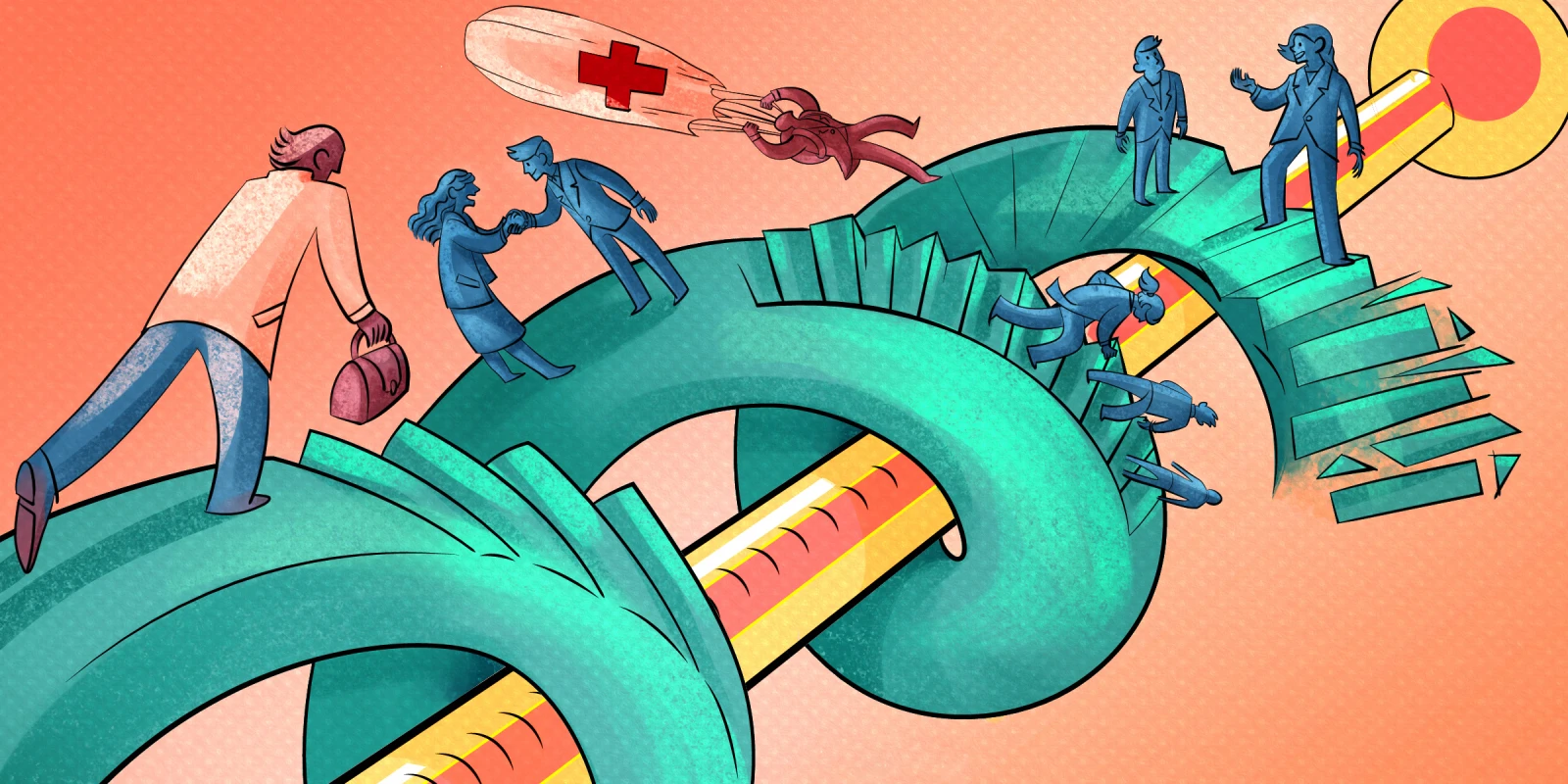Every so often, hotel ballrooms and convention centers across the U.S. are overrun with clinicians and company representatives in the name of education. For me, this has meant traveling across the country twice in the last month at the crack of dawn or on a red-eye flight for a few days at a time; partaking in a whirlwind of lectures, symposia, networking, committee meetings; and returning home to jump right back into the busy everyday reality of patient care. This dance is common for clinicians across most specialties and points in their career. It’s enlightening, exciting, and exhausting, and it raises a lot of questions about the utility and purpose of medical conferences during a time where cost and utilization of resources are pressing issues.
Make no mistake, attending conferences is not cheap. Many practices have money set aside for continuing medical education, but they often burn through it very quickly, especially when conference registration alone costs hundreds of dollars. Throw in flights and hotel rooms, taxis and meals, and the cost to attend can end up being in the thousands.
Most people in health care are well compensated, but for those who aren’t, this pay-to-play setup can be cost prohibitive, particularly for trainees or those without the resources of powerful departments or prominent universities. Trying to cut costs by locating conferences in less flashy, more budget-friendly locations may result in flagging attendance; part of the appeal of going to a conference is having an excuse to visit a new city or a fun location. I am as guilty of this indulgence as anyone. I’ve hustled to crank out research projects that could be submitted to conferences in the Netherlands, Germany, and Portugal, and slept on the floor or crossed oceans for fewer than two days in order to swing it financially. Time away also means less time for patient care, which can have a real impact for busy clinicians, as well as absences from family, which is already all too common, given the demands of a career in health care.
These conferences were shut down for years during the COVID-19 pandemic, when travel was prohibited and carried real physical risk. But we found a way around it, like many other industries. Conferences went virtual, as did interviews and courses. In this way, we all pushed forward and tried to continue with some normalcy. It provided a sense of connection when so many were siloed, wondering what was next. But now that we have emerged from that dark and scary time, Zoom has become somewhat of a four-letter word. Despite its convenience, many find it extremely impersonal and difficult to engage with. Attention lags and distractions are easy. The convenience easily deprioritizes the meeting — who hasn’t called in from a child’s sporting event or the drive-thru line? The ability to meet with colleagues and discuss ideas and topics informally is absent. A virtual conference is obviously more cost-effective and accessible, but ask around, and you’ll find few enthusiastic supporters.
So what is the value of in-person medical conferences? In my experience, it is the “person” part. It’s the time between lectures, when you have a chance to connect with colleagues from across the country — or world — or to see friends you haven’t connected with for months or years. It’s the chance to network with prospective employers or discuss new ideas with people who see things from a different perspective. It’s the bonds formed between scheduled activities and the after-hours adventures. In the hours outside of lectures, I’ve had deep talks about life with a dear friend from residency while trying to climb snowy hills in snowshoes and been unexpectedly put on the spot as the dedicatee of an a cappella Portuguese love song while my mentors and bosses recorded my uneasy surprise. These are the moments that make colleagues friends, that allow you to meet your heroes, to recapture the excitement of this career.
So much of a medical career is stressful and somewhat isolating, but events like these, for many, help build a sense of community. How things evolve in the future remains to be seen, but hopefully, the forum for connection and collaboration persists.
What benefits do you see in attending conferences in person, if any? Share your experiences in the comment section.
Heather is the inaugural Facial Plastic and Reconstructive Surgery fellow at Penn State. Her clinical interests include patient communication, medical education, facial reanimation, and complex reconstructive surgery. Heather was a Doximity Op-Med Fellow in the 2021–2022 cycle as well as the 2022–2023 cycle, and continues as a 2023–2024 Doximity Op-Med Fellow.
Illustration by April Brust






